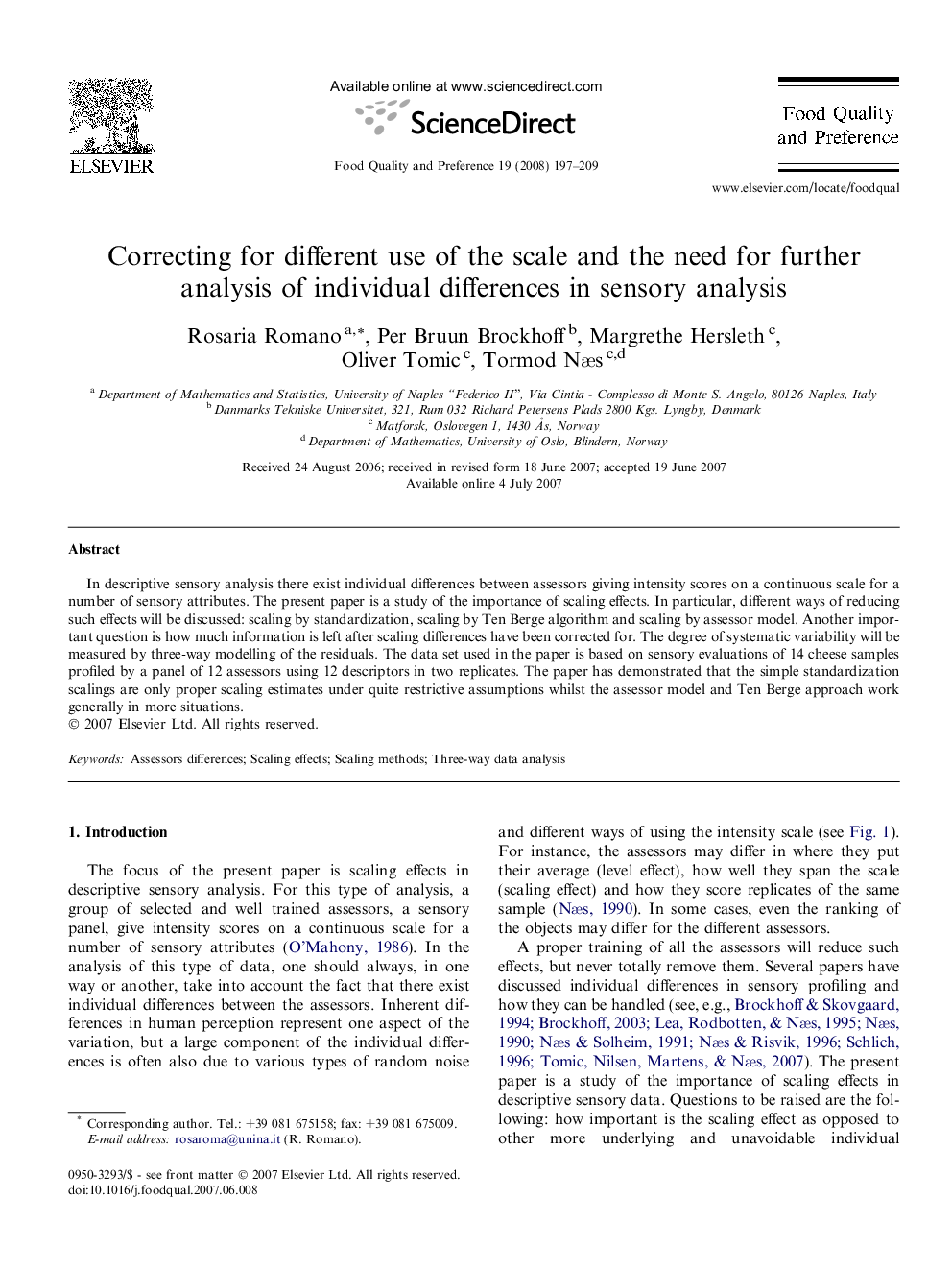| Article ID | Journal | Published Year | Pages | File Type |
|---|---|---|---|---|
| 4318146 | Food Quality and Preference | 2008 | 13 Pages |
In descriptive sensory analysis there exist individual differences between assessors giving intensity scores on a continuous scale for a number of sensory attributes. The present paper is a study of the importance of scaling effects. In particular, different ways of reducing such effects will be discussed: scaling by standardization, scaling by Ten Berge algorithm and scaling by assessor model. Another important question is how much information is left after scaling differences have been corrected for. The degree of systematic variability will be measured by three-way modelling of the residuals. The data set used in the paper is based on sensory evaluations of 14 cheese samples profiled by a panel of 12 assessors using 12 descriptors in two replicates. The paper has demonstrated that the simple standardization scalings are only proper scaling estimates under quite restrictive assumptions whilst the assessor model and Ten Berge approach work generally in more situations.
